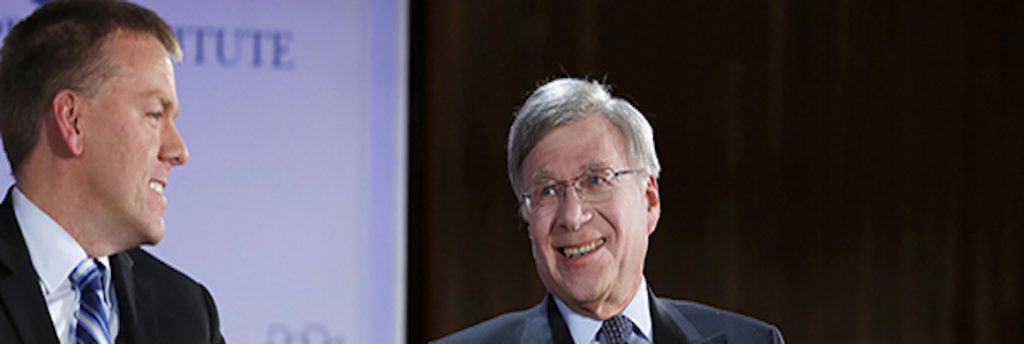MIT Sloan School of Management last week co-hosted the Cambridge Cyber Summit, featuring a panel of cybersecurity experts discussing ways in which government and financial institutions can minimize cybercrime by “understanding the motivations of the hackers,” according to this recent article.
Sloan Professor of Information Technology and Engineering Systems Stuart Madnick believes “detection and recovery” are at the crux of fighting cybercrime, no matter what form they might take: “a lone wolf hacking a single bank throughout the day, an organization trying to funnel money to an enemy of the state, [or] a state-sponsored group targeting an entire network.”
Circle CEO Jeremy Allaire extolled the virtues of blockchain technology, such as Bitcoin, which can more adequately protect financial data. “In a blockchain, each block holds a set of validated transactions, as well as the cryptographic hash connecting that block to the prior block in the chain,” he said.
Federal Reserve Bank of Boston CIO and Senior VP Don Anderson posed a question around the issue of widespread Bitcoin adoption: “How do you develop monetary policy around a digital currency?”
The panelists agreed that insiders pose the single greatest risk to financial institutions. S. Leslie Ireland, assistant secretary for intelligence and analysis in the U.S. Department of the Treasury, believes that the key is to “look for activity you can’t otherwise explain” but added that taking a “whole-person approach” is critical to understanding someone’s behavior.
Allaire believes that many security breaches are “a matter of social engineering as opposed to malicious intent.” “You find the naïve people who click on links, find enough ways to communicate with them in earnest, and you get their credentials. The more senior person, the better,” he elaborated.
